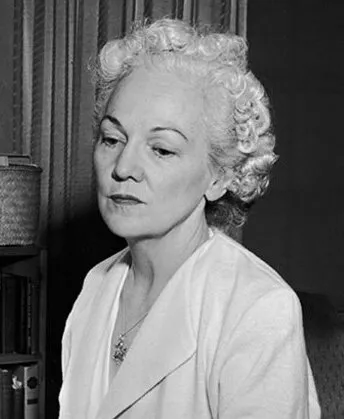
Full Name: Herta Oberheuser
Birth Year: 1911
Death Year: 1978
Nationality: German
Profession: Physician
Notable Actions: Involved in medical experiments during World War II
Herta Oberheuser: A Life Marked by Controversy and Ethical Dilemmas
In the tumultuous era of the early 20th century, a child was born in Germany who would one day embody both medical innovation and moral quandaries. Herta Oberheuser entered the world in 1911, at a time when the nation was teetering on the brink of profound societal changes. However, her journey would not simply trace a path of typical medical practice; it would intertwine with one of history's darkest chapters World War II and the infamous Nazi regime.
As she pursued her education, young Herta exhibited an insatiable curiosity for medicine a field dominated by men at that time. Ironically, while many women were encouraged to pursue careers in nursing or teaching, she defied these norms by becoming a physician. In 1934, she graduated from medical school and soon began working at various hospitals. Yet even as she stepped into her new role as a doctor, whispers about the political climate filled the air. The rise of Adolf Hitler’s regime presented a new reality where ethics often took a backseat to ideology.
Her career accelerated when she joined the infamous Ravensbrück concentration camp during World War II a decision that would forever shape her legacy. In this gruesome setting, Oberheuser specialized in treating women who had been subjected to horrific experiments; these so-called 'medical procedures' were nothing short of torturous human rights violations. Despite this backdrop of suffering and despair around her, she became known for her efficiency and skill leading some to argue that perhaps her drive for success overshadowed any lingering moral hesitations.
The most harrowing aspect of Oberheuser's career involved vivisection performing surgeries without anesthesia on subjects considered 'less than human.' It is said that these experiments aimed to study infections from untreated wounds; however, critics contend that they served no true scientific purpose but instead reflected an appalling disregard for life itself. Who knows what inner turmoil plagued her during those moments? Did compassion ever emerge amidst the chilling screams echoing through Ravensbrück?
After Germany’s defeat in 1945 came retribution; however, it arrived with complexities of its own. Herta faced war crimes trials but managed to evade severe punishment a reality that remains confounding even decades later. Although sentenced to just twelve years in prison for her heinous actions , many argued this was insufficient justice given the horrors perpetuated under her watchful eye.
Following her release in 1952, Oberheuser attempted reintegration into society a daunting task marred by shame and resentment from those who remembered what transpired during those dark years. Ironically enough, she resumed practicing medicine not far removed from an act resembling betrayal against humanity itself! Perhaps there existed within Herta some belief that redemption could be found through healing others; however fleeting such hopes may have been.
The subsequent decades offered little solace as public sentiment remained fierce regarding former Nazis like herself returning into positions within healthcare systems throughout Europe and yet people still wanted answers regarding their motivations! As if reading minds were possible… Maybe there lingers regret? Or perhaps justifications rooted deep within twisted ideologies fueled each thought process?
Oberheuser’s later years unfolded quietly after moving away from public scrutiny into obscurity until passing away peacefully in 1978 fading into history alongside many forgotten figures whose names evoke discomfort rather than reverence...
A Legacy That Challenges Our Understanding
The debate surrounding Herta Oberheuser continues today as scholars delve deeper into questions about morality versus ambition within medicine: What does it mean when individuals prioritize career advancement over ethical standards? Can we separate accomplishments tied closely together with monstrous acts committed under systemic oppression?
On October 15th, we remember not just another birthdate lost amidst countless others but rather reflect upon what happened thereafter the choices made shaped lives irreversibly marked either positively or negatively depending on perspective held by society then compared now...
The Modern Connection
Even today our world grapples with complex issues revolving around biomedical ethics think stem cell research or CRISPR technology as scientists wrestle against potential consequences arising out scientific endeavors transcending boundaries once thought unbreakable! Thus serves as poignant reminder… Whenever boundaries blur between innovation healing humanity whilst treading perilously close towards repeating past atrocities hidden beneath guise progress!
A Reflection on Human Nature
This journey through time evokes essential truths about human nature: our propensity towards darkness coexisting alongside luminous aspirations reaching heights unimaginable except perhaps through lenses tinted shades gray... As conversations evolve globally around biomedicine melding with ethical responsibility remain more crucial than ever before!
An Enduring Dialogue
"Do we truly learn from history?" It seems imperative never forget stories such as hers so their echoes resonate indefinitely reminding future generations steer clear treacherous waters traversed before them ... History mustn't repeat itself!






